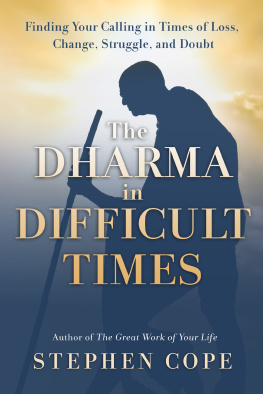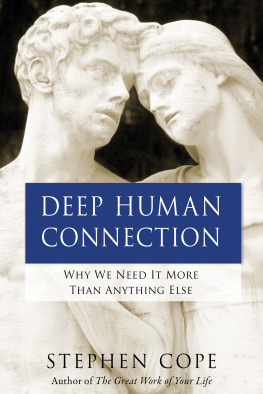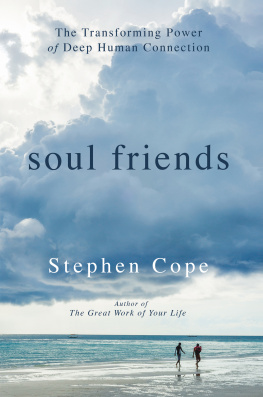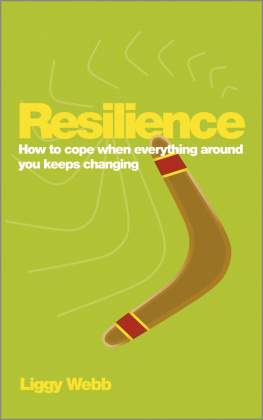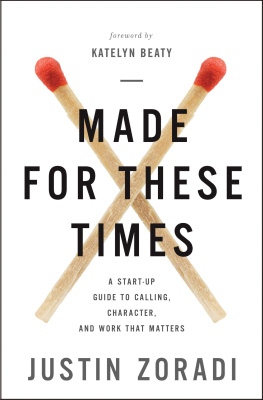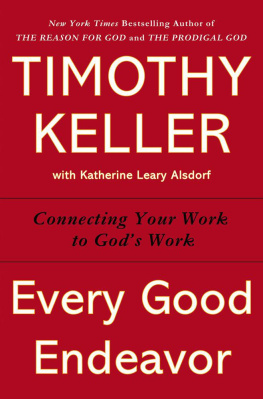Stephen Cope is Scholar Emeritus at the renowned Kripalu Center for Yoga and Health in Stockbridge, Massachusetts, and the founder and former director of the Kripalu Institute for Extraordinary Living. He is a Western-trained psychotherapist who writes and teaches about the relationship between Western psychological paradigms and the Eastern contemplative traditions, and is the best-selling author of such books as The Great Work of Your Life and Yoga and the Quest for the True Self. He is the recipient of numerous awards for his work.
Website: stephencope.com
This book has been written during what we will probably at some point in the future call COVID-times. The COVID pandemic has changed our world in ways that most of us could never have predicted. So, during the writing of the bookfrom 2018 to 2022I have always been standing on shifting sands. Shifting cultural sands. Shifting emotional sands. I hadnt intended it, of course, but it turns out that I have written a book about difficult times during difficult times. I can say with complete confidence that no writing project has ever challenged me quite so deeply. The writing of this book has engaged just about everyone and everything in my life for the past four years. Its hard, then, to imagine doing an adequate job of acknowledging the many debts of gratitude I now owe. But let me try.
First of all, the book itself would not have been possible without the love, help, and daily support of my companion, Susan Louise Griffiths. She runs the house, takes care of the dog, and makes the meals, while Im laboring at the office, and often burning the midnight oil. Susie does all of this without complaintindeed, with love and a sense of humor. I kid you not. Shes an angel.
Secondly, the book would certainly not have happened without the ongoing support and inspiration I receive from my spiritual and professional home baseKripalu Center for Yoga and Health in Stockbridge, Massachusetts, where I continue to be Scholar Emeritus. Im deeply grateful to the CEO, the Board, and the staff of Kripalu Center for its ongoing support and encouragement in so many forms.
Ned Leavitt is a seasoned, courageous, and unrelenting lover of the written word and the story. Luckily, he is also my literary agent. In this book project, he has been far more than an agent, though. I would say, perhaps, that hes been a worthy opponent: Krishna to my Arjuna. The book would not have been born in its present form without his candor, love, and skill.
I must give a deep bow of gratitude to my team from Hay House, including the marvelous Patty Gift, Marlene Robinson, and especially to the gentle, elegant, respectful, and super-smart Anne Barthel, my editor at Hay House, who has now guided me expertly through two books.
Nan Satter did her usual superb job of editing, and, as always, went the second mile with this bookas did our mutual friend, Gail Straub, who is my sister-in-authorship and one of my longest and deepest friendships.
Carol Bundy, author of the superb The Nature of Sacrifice, read the chapter on her relative, Charles Russell Lowell, and offered enormously helpful perspective and feedback.
Kim Townsend, my writing professor from Amherst College and dear friend, read the entire manuscript and gave his usual frank and unrestrained praise and criticism.
Nilgiri Press has been most generous in allowing me, once again, to use Eknath Easwarans brilliant rendering of the Bhagavad Gita, in his now-classic translation and commentary.
And finally, a deep bow of gratitude to my incomparable twin sister, Sandra Cope Stieglitz, to whom this book is dedicated (and of whom I have occasionally written within its covers). Sandy has been a most able, ardent, and truthful critic and supporter throughout my entire writing career, and so this book is dedicated to her with gratitude and love.
A morning glow has now begun to illuminate the field of Kuru, and the suns light increases moment by moment. Krishna and Arjuna are standing together, facing the horizon, saying their morning prayers. They stand with arms outstretched and make repeated deep bows toward the rising sun, all the while intoning an ancient chantthe sacred Gayatri Mantra. This is their most sacred chant. Their prayer this morning is especially fervent. Om bhur bhuvah svah, tat savitur varenyam...
We meditate on that most adored Supreme Lord, the creator, whose divine light illumines all realms. May this divine light illumine our intellect.
Their ritual prayer, with its repeated bows, slowly becomes more vigorous. As Krishna and Arjuna breathe deeply, the cool morning air in their lungs is soothing and sweet. Droplets of sweat begin to emerge on both their brows.
Halfway through the prayers, Arjuna notices a faint glow around the body of Krishna. Then a penumbra of gold mysteriously begins to surround Krishnas entire physical form. The light grows slowly brighter, untilin a flashKrishnas mortal body seems to explode into fire. For a moment, the surrounding landscape is lit up.
The hairs stand up on the back of Arjunas neck as he feels himself drawn into a vortex of energy and light. His own solid body begins to lose its accustomed form. He finds himself both terrified of the light and deeply drawn toward it. As Arjuna is consumed by the glow, he feels an indescribable sense of releaseas if sloughing off the physical body and its eons of karma. For a moment Arjuna feels entirely free of any suffering or fear, as if he had taken off a suit of armor that he didnt even know he was wearing.
Deep emanations of bliss and love now flow through Arjuna like waves. There is nothing he can do but surrender. He allows himself to be washed by these waves. His love for Krishna has become unbounded, and for a few moments of rapture, Arjuna feels connected with all beings everywhere.
Bowing down to Krishna, Arjuna cries out:
You are the supreme, changeless Reality, the one thing to be known. You are the refuge of all creation, the immortal spirit, the eternal guardian of eternal dharma. You are without beginning, middle, or end; you touch everything with your infinite power. The sun and moon are your eyes, and your mouth is fire; your radiance warms the cosmos. (Gita 11:1819)
For a few miraculous seconds, the entire world of mind and matter is dissolved. Everything becomes part of one unified field. The ego and the mortal body are consumed in the flames of consciousnessdeconstructing the hard shell of the human self and freeing the soul back into its original Union.
What was happening here?
Arjuna had been granted the Divine vision.
2
In every age, mystics have beheld the Divine vision, and their descriptions of it are remarkably similar to Arjunas.
St. Teresa of Avila reached for words to try to describe her own experience of the vision:
When the soul looks upon this Divine Sun, the brightness dazzles it... And very often it remains completely blind, absorbed, amazed, and dazzled by all the wonders it sees.
Moses described his Divine vision on Mount Horeb as a great fire that he beheld in a bushthe burning bush that was not consumed by the flames. His face and beard were scorched by it. And as Moses descended the holy mountain, his entire countenance began to glow, so that he had to cover his face when approaching his followers.
For some mystics, the Divine vision lingers. Teilhard de Chardin was a 20th-century French Jesuit who had the gift of inner sight. He tells us that he constantly saw the world lit up from within by the Divine. Throughout my whole life, he wrote, during every minute of it, the world has been gradually lighting up and blazing before my eyes until it has come to surround me, entirely lit up from within.

